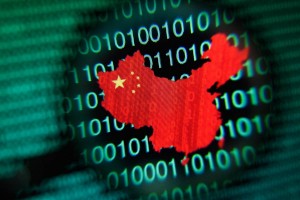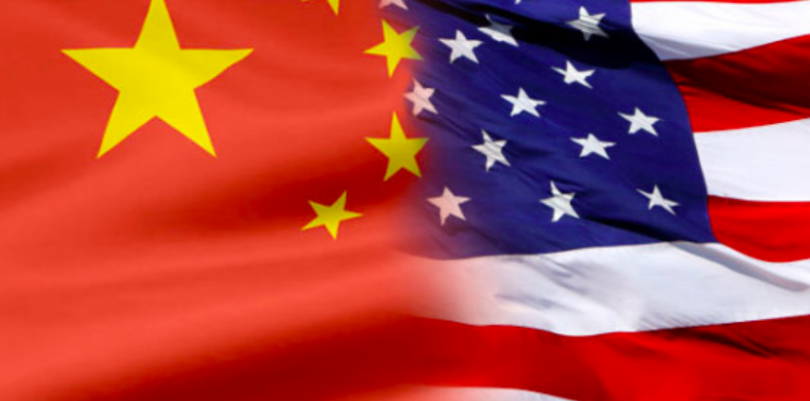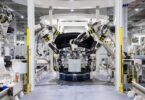aNewDomain — Amazon’s decision last month to sell off $300 million plus of its Amazon Web Services (AWS) hardware to a Chinese partner is bad for US competitiveness, according to the former director of a Reagan-era US intelligence effort to study and restore America’s declining global competitiveness.
— Amazon’s decision last month to sell off $300 million plus of its Amazon Web Services (AWS) hardware to a Chinese partner is bad for US competitiveness, according to the former director of a Reagan-era US intelligence effort to study and restore America’s declining global competitiveness.
“Deals like that start having negative ramifications on US competitiveness from the moment the deal is signed,” said Mike Sekora, the US intelligence official who founded and ran the Defense Intelligence Agency’s Socrates Project from 1985 to 1991.
The Pentagon-backed Socrates technology initiative studied the reasons behind America’s economic decline globally and helped the US outmanuever the USSR during the Cold War.
“The technology that China accesses from the Amazon deal could be distributed to hundreds of Chinese companies for a competitive advantage before the ink on the Amazon deal contract is even dry,” he said.
“But the Americans, because they are only looking at their own corner of the cloud market, won’t even notice it.”
 In a filing in early November, Beijing Sinnet Technology Co. revealed it was buying up AWS servers, IT equipment and other hardware for $301.2 million. Sinnet, which is Amazon’s legally mandated business partner to manage its AWS in China, said the purchase was necessary because of a new Chinese regulation that forbids foreign firms from owning or operating cloud technologies after Jan. 1, 2018.
In a filing in early November, Beijing Sinnet Technology Co. revealed it was buying up AWS servers, IT equipment and other hardware for $301.2 million. Sinnet, which is Amazon’s legally mandated business partner to manage its AWS in China, said the purchase was necessary because of a new Chinese regulation that forbids foreign firms from owning or operating cloud technologies after Jan. 1, 2018.
“To understand deals like this one,” Sekora added, “you have to stop thinking in terms of a single technology and a single market. Instead, look at it like China does — as part of an interconnected whole.”
In its technology-first approach, China develops and executes a holistic plan to make sure Chinese companies and industries identify and acquire the technologies and wins they need to dominate any given sector over the long term, he said.
“The only time any American private or public organization is allowed into China, for any reason, is when it benefits the extremely precise and well-established requirements as mandated by China’s technology strategy,” said Sekora.
“Because China’s holistic tech strategy addresses China’s complete ecosystem, the impact of the Amazon deal will far surpass what Americans could ever anticipate, he added.
“And once China has acquired what it needs, Amazon will no longer have access to the country. It’ll be locked out. Its access will be removed by whatever means are necessary. It’s as simple as that.”
Flagging fortunes
The AWS-Sinnet deal is exactly the sort of finance-driven business decision that the Socrates Project (TSP) fingered as the root cause of America’s flagging fortunes more than 30 years ago.
Technology-first planning was what originally fueled the success of such industrial giants like General Motors, DuPont and Dow Chemical, the project found. But after America emerged from World War II as one of the few world powers with manufacturing and export powers still intact, US companies began operating from a ‘if we build it, they will buy’ perspective, Sekora said. They began to institutionalize profit-driven measures of success in place of tech-based ones that focus on outmaneuvering the competition and creating, gaining and using the tech required to produce the best product possible, he explained.
“Until we transition the U.S. back to technology-based decision-making — and at a level that far surpasses China’s or any other competitor’s capacity to do this — America will continue to lose ground in the global marketplace, Sekora said.
“The disease killing America’s economic health is financial-based planning,” he said, calling to mind the US loss of its manufacturing base.
American companies and other institutions readily divested the country of its home-grown manufacturing chops because they couldn’t see beyond short-term financials. Eyeing profits, they couldn’t see how this would transfer America’s economic might to China and other adversaries, Sekora said
What losing looks like
“Over the last 40 plus years, China has used technology-based planning to make itself into a superpower,” said Sekora. “And it’s done so rapidly — faster than any country in history ever has.”
According to the World Bank, China now is the world’s largest economy as measured by its GDP and adjusted for cost of living considerations. It now has the world’s fastest supercomputers, manufactures most of the world’s computer chips and is the leading maker of drone hardware.
In June 2017, the U.S. debt to China amounted to some $1.14 trillion.
China’s beating the US in trade was a big focus of US Pres. Donald Trump’s 2016 presidential campaign, though he has since softened his rhetoric.
And Trump’s recent trip to Beijing belies typical American shortsightedness, Sekora said. White House and Congressional programs around rebuilding America’s economic health with balanced trade, tax rate reductions and ‘buy American’ programs are woefully inadequate if the goal is to restore and ensure American’ competitiveness.
“The US is losing the economic war with China, Sekora said. And the Trump administration and Congress are proposing exactly nothing that will turn it around.”
For aNewDomain, I’m Gina Smith.
Cover image: WorldAffairs.org












